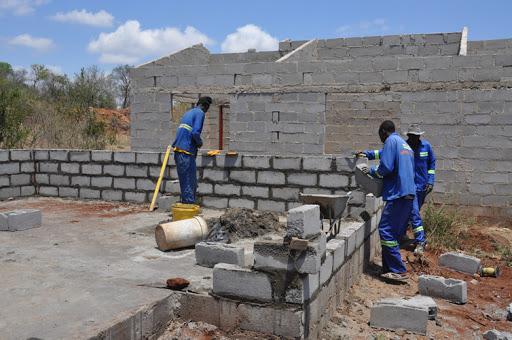News / National
Construction thrives in Zimbabwe
6 hrs ago | Views

Zimbabwe's construction sector is on the rebound despite the effects of currency volatility and an uncertain monetary policy framework.
Piniel Mkushi, chairman of Cafca - the only cable manufacturer in Zimbabwe and a unit of Reunert-controlled CBi Electric - said yesterday that "the construction sector was buoyant purred by the road construction activities, new housing and property development" projects.
Nonetheless, the overall trading environment for Zimbabwe has been volatile, worsened by a decline in commodity prices for most metals and alloys as well as the impact of the drought for the 2023/2024 agricultural season, which dampened demand across the economy.
Currency instability in September and earlier in the year also drove up inflation while exchange rate fluctuations remain "a challenge to value" preservation. Cafca manufactures electric cables for the Zimbabwe and regional market.
Despite an uncertain outlook, the company believes that its depth of experience in the Zimbabwean market and the region "puts Cafca in a competitive position to drive growth" and capacity utilisation.
In the year to the end of September, Cafca raised volumes by 10% although the sales mix was skewed towards low margin sales, therefore resulting in a 5% and 18% inching down of revenue and operating profit respectively.
Zimbabwean contractor, Masimba Holdings (formerly Murray and Roberts) also said yesterday that the mining and housing infrastructure segments had boosted its order revenues during the quarter period to end September by 10%. Revenue for the nine month period to September 2024 closed at $45.8 million (R828 million).
"The growth is attributable to a firm order book in mining and housing infrastructure segments, however, this was subdued due to liquidity constraints in the market," said Pearl Mutiti, company secretary for Masimba.
"Profitability during the period under review remained positive, mainly due to improved profit margins resulting from cost containment strategies that were implemented, leading to operational efficiencies."
Despite the liquidity constraints within the Zimbabwean market, Masimba's liquidity position strengthened due to enhanced working capital management. The company had borrowings of $1.1m as at the end of the quarter period under review.
"We believe that securing sustainable financing for infrastructure development projects underway nationwide will anchor sustained growth and contribute to tangible socio-economic transformation," explained the company.
Zimbabwe's construction sector has been buoyant as investors and fund holders seek value preservation alternatives given the country's fluctuating and volatile monetary sector.
Zimbabwe-listed Tigere Property Fund said recently that it had "noted a buoyant real estate sector during the third quarter with many new projects in planning and development" stage.
"The demand for value-preserving assets combined with exchange rate volatility has caused an upward shift in pricing across the real estate value chain. We believe that well-located, quality assets will retain their premium rental status," said Tigere.
Piniel Mkushi, chairman of Cafca - the only cable manufacturer in Zimbabwe and a unit of Reunert-controlled CBi Electric - said yesterday that "the construction sector was buoyant purred by the road construction activities, new housing and property development" projects.
Nonetheless, the overall trading environment for Zimbabwe has been volatile, worsened by a decline in commodity prices for most metals and alloys as well as the impact of the drought for the 2023/2024 agricultural season, which dampened demand across the economy.
Currency instability in September and earlier in the year also drove up inflation while exchange rate fluctuations remain "a challenge to value" preservation. Cafca manufactures electric cables for the Zimbabwe and regional market.
Despite an uncertain outlook, the company believes that its depth of experience in the Zimbabwean market and the region "puts Cafca in a competitive position to drive growth" and capacity utilisation.
In the year to the end of September, Cafca raised volumes by 10% although the sales mix was skewed towards low margin sales, therefore resulting in a 5% and 18% inching down of revenue and operating profit respectively.
Zimbabwean contractor, Masimba Holdings (formerly Murray and Roberts) also said yesterday that the mining and housing infrastructure segments had boosted its order revenues during the quarter period to end September by 10%. Revenue for the nine month period to September 2024 closed at $45.8 million (R828 million).
"The growth is attributable to a firm order book in mining and housing infrastructure segments, however, this was subdued due to liquidity constraints in the market," said Pearl Mutiti, company secretary for Masimba.
"Profitability during the period under review remained positive, mainly due to improved profit margins resulting from cost containment strategies that were implemented, leading to operational efficiencies."
Despite the liquidity constraints within the Zimbabwean market, Masimba's liquidity position strengthened due to enhanced working capital management. The company had borrowings of $1.1m as at the end of the quarter period under review.
"We believe that securing sustainable financing for infrastructure development projects underway nationwide will anchor sustained growth and contribute to tangible socio-economic transformation," explained the company.
Zimbabwe's construction sector has been buoyant as investors and fund holders seek value preservation alternatives given the country's fluctuating and volatile monetary sector.
Zimbabwe-listed Tigere Property Fund said recently that it had "noted a buoyant real estate sector during the third quarter with many new projects in planning and development" stage.
"The demand for value-preserving assets combined with exchange rate volatility has caused an upward shift in pricing across the real estate value chain. We believe that well-located, quality assets will retain their premium rental status," said Tigere.
Source - IOL




































